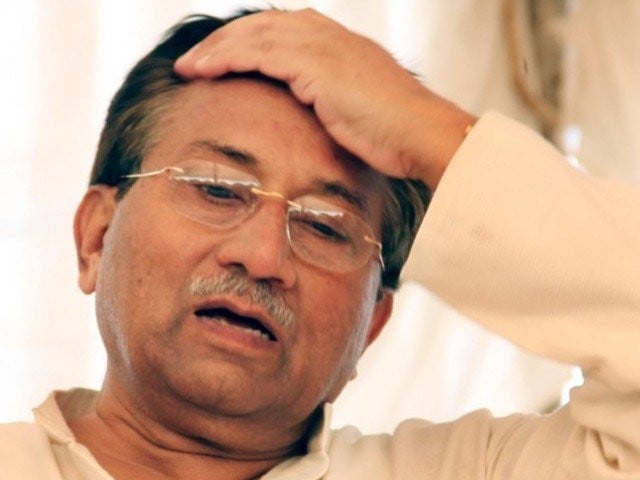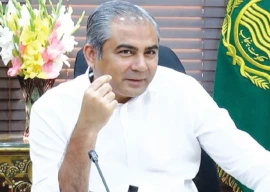
During the hearing of the case, Musharraf’s counsel Akhtar Shah submitted a medical report of the former military dictator and requested ATC judge Sohail Ikram to grant his client temporary exemption from appearing in court in judges’ detention case.
ATC issues arrest warrants for Musharraf in judges’ detention case
The judge, however, rejected the report saying Musharraf left the country in March but the medical report produced in the court is of April. The judge also upheld the non-bailable arrest warrants for the former military ruler and directed the IGP Islamabad to produce the accused before the court on May 20 — the next hearing of the case.
Musharraf’s lawyer argued that his client was ready to appear in the court provided his doctors allow him and the government provides him security. The judge, however, remarked that the former dictator has not appeared before the court for the last two years.
Meanwhile, Islamabad police in its report told the court that it was not possible to execute the non-bailable arrest warrants against Musharraf who had left for Dubai in March.
Legal proceedings were initiated against the former military dictator for detaining over 60 judges, including former chief justice Iftikhar Muhammad Chaudhry. The judges were detained after proclamation of a state of emergency in the country.
Non-bailable arrest warrants for Musharraf issued again
Musharraf is facing terrorism charges in the case, which was based on a first information report (FIR) registered against him on August 11, 2009 by the Secretariat police for detaining over 60 judges, including former CJP.
In June 2013 the court indicted Musharraf in the judges’ detention case. According to the charge sheet, the military ruler had imposed a state of emergency and detained the judges. Fifteen lawyers had already recorded their statements as witnesses against Musharraf.
On June 11, 2013, the Islamabad High Court (IHC) had granted pre-arrest bail to the former president.






1732688687-5/Copy-of-Untitled-(95)1732688687-5-270x192.webp)










COMMENTS (4)
Comments are moderated and generally will be posted if they are on-topic and not abusive.
For more information, please see our Comments FAQ